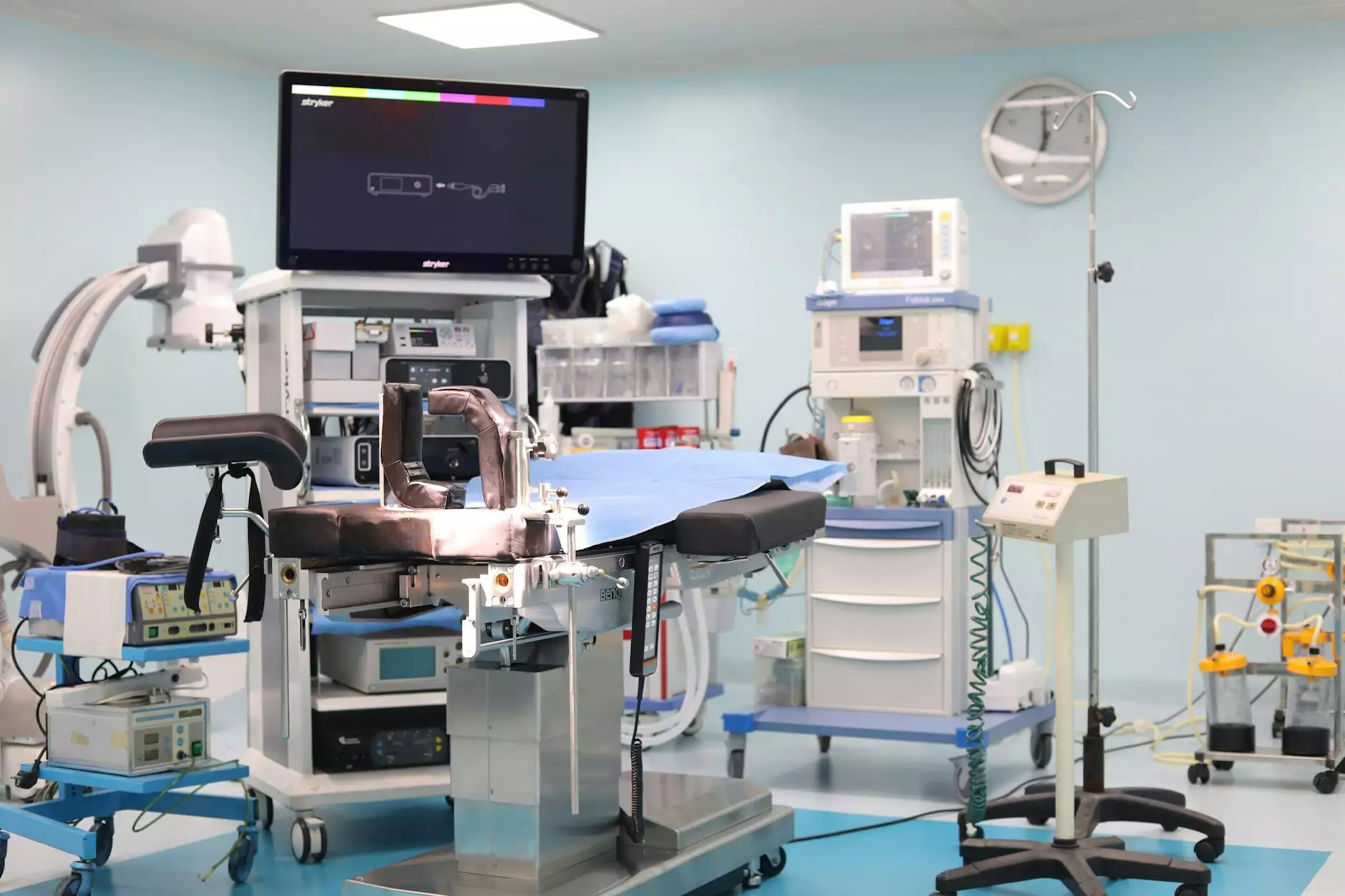Understanding Gastric Bypass: A Comprehensive Guide to Health and Wellness

In today’s fast-paced world, obesity has become a significant health challenge that affects millions of individuals. As health and wellness become a growing concern, many people are exploring surgical options like gastric bypass to help achieve a healthier lifestyle. This article dives deep into the realm of gastric bypass surgery, discussing its processes, benefits, potential risks, and how it can transform lives.
What is Gastric Bypass?
Gastric bypass is a type of weight loss surgery that alters how your stomach and small intestine handle the food you eat. During this procedure, the surgeon constructs a small pouch at the top of the stomach, which restricts food intake. This pouch is then connected directly to the small intestine, thus allowing food to bypass a large portion of the stomach and part of the small intestine. This results in reduced calorie and nutrient absorption, significantly aiding in weight loss.
How Does Gastric Bypass Work?
The gastric bypass procedure can be broken down into several key steps:
- Creation of the Pouch: The surgeon staples the stomach to create a small, banana-shaped pouch that holds food.
- Bypassing the Duodenum: The pouch is connected to a portion of the small intestine, effectively bypassing the duodenum.
- Reduced Food Intake: By limiting the amount of food the new pouch can hold, patients often feel fuller quicker.
- Altered Nutrient Absorption: With less of the intestine available for nutrient absorption, patients often experience significant weight loss.
Benefits of Gastric Bypass
Opting for a gastric bypass can lead to numerous benefits beyond just weight loss. Below are some of the key advantages:
- Significant Weight Loss: Many patients lose over 60% of their excess weight within 12-18 months after the procedure.
- Improvement of Health Conditions: Weight loss can lead to the resolution or improvement of obesity-related conditions such as type 2 diabetes, hypertension, and sleep apnea.
- Enhanced Quality of Life: Many patients report improvements in mobility, self-esteem, and overall physical and mental well-being.
- Long-Term Success: Studies show that gastric bypass can lead to sustained weight loss and long-term health benefits when combined with lifestyle changes.
Who is a Candidate for Gastric Bypass?
Not everyone is a suitable candidate for gastric bypass surgery. A typical candidate may include individuals who:
- Have a body mass index (BMI) of 40 or higher, or a BMI of 35 with obesity-related health issues.
- Have tried multiple other weight loss methods without success.
- Are committed to making lifestyle changes after surgery.
- Understand the risks associated with the procedure.
The Risks and Considerations of Gastric Bypass
While gastric bypass can offer significant benefits, it is essential to understand the associated risks. Potential complications can include:
- Short-term Risks: These may include infection, blood clots, and complications related to anesthesia.
- Long-term Risks: Patients may experience nutritional deficiencies due to decreased absorption of nutrients.
- Dumping Syndrome: This can occur after eating high-sugar foods and can cause symptoms such as nausea, vomiting, and diarrhea.
- Weight Regain: Some patients may regain weight over time if they do not adhere to post-operative guidelines.
Preparing for Gastric Bypass Surgery
Preparation is critical for a successful gastric bypass. Here are steps to consider:
- Medical Evaluation: Undergoing a thorough medical evaluation to determine if you are a candidate for the surgery.
- Consultation with Specialists: Meeting with a dietitian, psychologist, and surgeon to ensure you understand the procedure.
- Pre-operative Diet: Following a specific diet to help reduce liver size and promote a safer surgery.
- Setting Realistic Goals: Establishing clear and achievable weight loss and health goals to stay motivated post-surgery.
Post-Operative Care and Lifestyle Changes
Adjusting to life after gastric bypass is as important as the surgery itself. Key aspects include:
- Dietary Changes: Transitioning to a diet that begins with liquids and gradually introduces solids, while focusing on nutrient-dense foods.
- Regular Follow-ups: Schedule regular follow-up appointments with your healthcare team to monitor your progress and address any concerns.
- Incorporating Exercise: Engage in regular physical activity to aid weight loss and improve overall health.
- Support Systems: Joining support groups or engaging with a community of fellow patients can greatly aid in maintaining motivation.
Real-Life Transformations: Success Stories
The impact of gastric bypass extends beyond physical transformation. Here are some inspiring success stories:
Jane's Journey: Jane lost over 130 pounds and has since maintained her weight for five years. She attributes her success to careful adherence to her post-operative plan and engaging regularly in community activities.
Michael's Turnaround: After undergoing gastric bypass, Michael was able to control his diabetes effectively, achieving normal blood sugar levels for the first time in years. His story is a testament to the health benefits that accompany sustained weight loss.
Conclusion: Is Gastric Bypass Right for You?
Gastric bypass surgery can be life-changing for those struggling with obesity and related health issues. It offers a viable path to significant weight loss and improved health conditions when accompanied by firm commitment and lifestyle changes. However, it is essential to weigh the benefits against potential risks and to engage with healthcare professionals to determine if this path is right for you.
In the end, the journey to health and wellness is personal. With the right information and support, gastric bypass can pave the way for a healthier, more fulfilling life.









